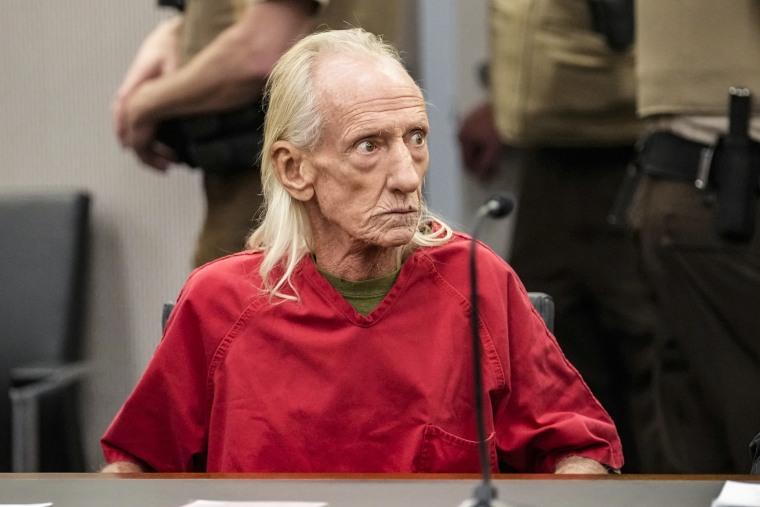US Man Sentenced to Over Five Decades for Killing Palestinian American Child
A recent court ruling in the United States has resulted in a 53-year prison sentence for a man found guilty of murdering a Palestinian American child. This verdict represents a pivotal moment in a case that has captured national attention, shedding light on the persistent issue of violence targeting minority groups. The outcome not only delivers justice for the victim’s family but also ignites important discussions about accountability and community safety.
Case Overview: Tragic Loss and Legal Resolution
The victim, a young Palestinian American child beloved by family and community alike, was fatally attacked in an incident that shocked many. Following an exhaustive investigation and a widely publicized trial, the court imposed a lengthy sentence reflecting the severity of the crime. The family expressed a complex mix of grief and relief, underscoring the critical role of the justice system in addressing such tragedies and deterring future violence.
- Victim Profile: A vibrant child deeply cherished within their community
- Incident Summary: Details surrounding the attack and subsequent legal actions
- Judicial Outcome: A 53-year sentence emphasizing the seriousness of the offense
Investigation and Trial: Unveiling the Facts
Law enforcement agencies conducted a meticulous investigation into the child’s death, utilizing forensic science and eyewitness testimonies to identify the perpetrator. The inquiry spanned several months, during which a detailed timeline of events was reconstructed, providing prosecutors with a strong foundation for their case.
Key evidence presented during the trial included:
- Forensic DNA analysis linking the defendant to the crime scene
- Multiple eyewitness accounts confirming the sequence of events
- Security camera footage tracking the suspect’s movements before and after the incident
Despite the defense’s attempts to challenge procedural aspects and seek leniency, the jury remained convinced of the defendant’s guilt. Below is a timeline highlighting key milestones in the case:
| Event | Date | Description |
|---|---|---|
| Incident Occurrence | January 2023 | Attack reported and initial investigation launched |
| Arrest of Suspect | March 2023 | Detained following evidence collection and witness statements |
| Trial Proceedings | May 2024 | Presentation of evidence and witness testimonies |
| Sentencing | June 2024 | Defendant sentenced to 53 years imprisonment |
Community Reaction: Mourning, Mobilization, and Advocacy
The sentencing has sparked a wave of responses across social media and community platforms, blending sorrow with demands for systemic reform. Activists and community leaders have called for heightened awareness of the challenges faced by Palestinian Americans, emphasizing the urgent need to address racial profiling and hate crimes. The case has galvanized efforts to protect minority rights and foster safer environments nationwide.
- Memorial events and vigils held in multiple cities to honor the child’s legacy and unite communities
- Awareness initiatives aimed at educating the public about the experiences of Palestinian Americans
- Policy advocacy campaigns pushing for stronger hate crime legislation and preventive measures
| Community Effort | Outcome |
|---|---|
| Petitions for enhanced hate crime laws | Over 15,000 signatures collected within a week |
| Public forums and town halls | Engaged more than 2,500 participants |
| Fundraising for victim’s family | Raised $40,000 during initial campaign |
Strategies to Combat Hate Crimes and Strengthen Legal Safeguards
Addressing hate crimes effectively requires a multifaceted approach involving legislative reform, law enforcement training, and community collaboration. Enhanced educational programs for police officers can improve recognition and response to bias-motivated offenses, ensuring victims receive protection and perpetrators are held accountable. The creation of dedicated hate crime units within law enforcement agencies can further bolster investigative capabilities and demonstrate a firm stance against such violence.
Public education campaigns promoting diversity, empathy, and human rights are vital to tackling the root causes of hate crimes. Partnerships between government entities and community organizations can foster trust, improve reporting mechanisms, and support victims. The following framework outlines essential measures to enhance protections and aid those affected:
- Robust hate crime laws with explicit definitions and mandatory sentencing enhancements
- Comprehensive victim support services including counseling, legal assistance, and rehabilitation
- Improved data collection for accurate monitoring and policy development
- Coordinated efforts across local, state, and federal agencies
- Community engagement programs fostering resilience and mutual understanding
| Recommended Initiative | Objective | Anticipated Benefit |
|---|---|---|
| Dedicated Hate Crime Units | Enhance investigation and prosecution of bias crimes | Higher conviction rates and deterrence |
| Mandatory Hate Crime Reporting | Standardize documentation and tracking | Reliable data to inform policy |
| Education and Outreach Programs | Promote inclusivity and reduce prejudice | Lower incidence of hate-motivated violence |
Looking Ahead: Justice and the Path Forward
The 53-year sentence handed down in this case marks a crucial step toward justice for the Palestinian American community and highlights the judiciary’s role in confronting hate-fueled violence. Beyond the courtroom, this case serves as a catalyst for ongoing dialogue about protecting vulnerable populations and fostering societal change. Continued vigilance, legal reform, and community solidarity remain essential to preventing similar tragedies and ensuring equitable treatment for all.







